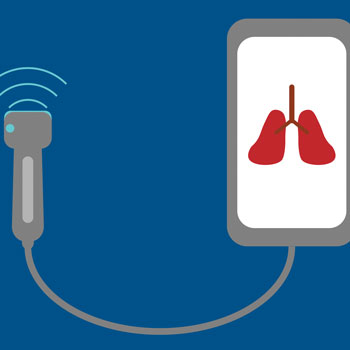Figuring out family planning
Experts delved deeper into the obstacles to starting a family for early career physicians.
Starting a family can be daunting for any young professional. For early career physicians, though, the unique demands of the job can make this chapter in life particularly challenging.
Long hours, potential hazardous workplace exposures, and stigma against motherhood are just a few of the hurdles newly employed physicians encounter. Add to that the emotional, physical, and financial toll of childbearing, and many decide to put it off. In one survey published by JAMA Network Open in 2023, more than three-quarters of women physicians reported that they delayed family building.

“A lot of their reasons had to do with lack of schedule flexibility or time, stress associated with family planning, the financial burden it would place on them and their families, and general concerns about how it would impact their colleagues,” explained Vidhya Prakash, MD, FACP, secretary of the American Medical Women's Association and an infectious diseases physician at SIU School of Medicine in Illinois, who was not involved in the study.
In interviews with I.M. Matters, experts delved deeper into these obstacles, offered their advice on overcoming them, and emphasized the importance of putting your personal needs first.
“Many of us feel a very, very strong calling to our profession, and that's very noble and really a privilege, honestly. But it shouldn't come at the expense of our personal health and personal goals,” said Rashmi Kudesia, MD, MSc, a reproductive endocrinologist in Houston. “The tendency to put the job first has a big impact on our trajectory in terms of building families.”
Barriers abound
From the outset, women physicians may have a harder time conceiving than peers in different professions.
“The risk of infertility in female physicians is higher than in the general female population,” explained Ariela Marshall, MD, a hematologist and associate professor at the University of Minnesota in Minneapolis, who's published several articles on the topic. “In the general population, it's probably one in six to one in eight, and it's one in four in female physicians.”
Older age when starting a family, potentially due to protracted years of training, and stress related to the job might both contribute to high rates of infertility, Dr. Marshall said.
On the other hand, stigma, guilt, and shame around being pregnant and postpartum may lead physicians to delay. “In the workplace, you can definitely get comments when somebody is pregnant, like, ‘Oh, how long are you going to be out?’ Or ‘What are you planning?’ And then even after [you give birth], I think … things like assuming that, because somebody is a mom now, that she won't want to take on a leadership position,” explained Dr. Marshall.
Dr. Kudesia agreed. Some early career physicians looking to start a family may encounter questions from colleagues about how they're planning to balance work and family life. “It's kind of a question of, ‘How committed are you to a career in medicine?,’ as if it has to be all or nothing. And I think that is changing, but I do feel that that's still a part of the environment in certain situations,” she said.
She noted that mentors or professors from different generations or with different viewpoints can pass these attitudes along, creating an environment less favorable to family building.
Workplace accommodations for mothers weren't typically discussed 20 or 30 years ago, Dr. Marshall explained. “Back when a lot of leaders were still training, it was a largely male physician workforce, and female physicians waited a long time to have families, didn't have families, or just … didn't really mention it in the workplace.”
According to the American Medical Women's Association, women accounted for just 25% of senior leadership roles within health care organizations in 2022 and fewer than 20% of C-suite positions, while studies show gender-diverse leadership teams are more likely to prioritize policies like maternity leave and flexible working conditions.
In unsupportive settings, new or prospective mothers often won't want to draw attention to themselves by requesting special accommodations, said Dr. Kudesia. Such a culture can also compound the emotional burden young physicians experience when pursuing fertility treatments.
“[Fertility treatments are] often not successful during the first round, and that can be associated with a lot of distress that the woman physician would really need the support of her leadership to get through,” said Dr. Prakash. “But there are also feelings of inadequacy and shame that we don't really like to talk about in our spheres; this needs to come to the forefront. We must support our women throughout their journeys.”
Other physicians might misunderstand the success rates of IVF and the specifics of what the process entails, said Dr. Kudesia. For patients experiencing infertility or recurrent miscarriages, it can be an incredibly isolating and stressful time. “On the one hand, you want to do everything possible to give yourself that space to have a healthy pregnancy, and on the other hand you're still trying to hold your own at work, and so I think that a lot of physicians struggle with that balance.”
Once physicians become pregnant, they may be at a heightened risk of pregnancy complications. A 2021 survey of 850 surgeons published by JAMA Surgery found that of the 692 female participants, 290 (42%) had a pregnancy loss, more than double the rate of the general population.
“That study demonstrated higher rates of prematurity, higher rates of obstetric complications [among surgeons],” Dr. Kudesia said. “Whether the degree of severity is the same or not the same across specialties, I think some of the risk factors are still there,” such as lack of sleep and long hours on your feet.
Exposure to infectious diseases or radiation is another hazard pregnant physicians must consider. “There's unique positions that we're put into as female physicians where either we have to choose to announce [we're pregnant] earlier than we may want to or potentially put ourselves at risk,” Dr. Kudesia said.
Taking control
The right time to start a family is an individual decision, but as part of the preparation, physicians can work to curate the right conditions for themselves and others.
“The first thing that really has to happen is awareness and willingness to change on the part of leadership to provide that supportive environment [for mothers],” Dr. Marshall said. “It's really important to frame this as an issue everybody needs to be aware of, and not just something that female physicians need to deal with.”
As more voices are raised, things are beginning to change in the medical community. For example, Lisa Bellini, MD, MACP, executive vice dean of the Perelman School of Medicine at the University of Pennsylvania, explained how her institution has started adjusting clinical productivity targets for the amount of time physicians are away on maternity leave. They've also introduced a lactation credit for faculty “to be able to offset 30 minutes each half-day if they're in clinical responsibilities so they can get credit and not have a patient scheduled” when they need to pump.
Some planning on an individual level can also help early career physicians overcome hurdles.
For one, when searching for a job, be on the lookout for insurance plans that cover the cost of egg or embryo freezing and other fertility treatments. “If an employer offers those benefits, then they are [most likely] truly supportive of that balance,” said Dr. Kudesia. Be sure to ask when the benefits kick in, too.
Understanding workplace policies on maternity leave, schedule flexibility, breastfeeding, and child care gives physicians a sense of whether the organization aligns with their vision of parenting. Physicians can even engage with employees who've gone through pregnancy or fertility treatments at the job and learn how the process was for them.
Dr. Prakash encouraged young physicians to familiarize themselves with their rights. “A woman physician should really understand what the policies are around protected time for things like OB-related appointments, especially for procedures around fertility-related treatments,” she said. “It needs to be built into the culture to be able to attend these things without being penalized in having to take personal time off.”
This is particularly crucial when it comes to understanding federal and state policies on maternity leave. “You don't have the FMLA [Family and Medical Leave Act] benefit until you've worked someplace for a year,” explained Dr. Bellini, who gave a presentation on family planning at Internal Medicine Meeting 2025. “I can't tell you how many times people come here and join the faculty only to find out they're pregnant. They're going to deliver within that first year, and then they don't have the FMLA benefit, so we need to get very creative.”
Educating yourself on the biological aspects of family planning goes a long way as well.
“Even among physicians, one of the biggest things that people are often surprised by is the actual rates of getting pregnant month-to-month,” said Dr. Kudesia. “Even in peak fertility years, there's maybe a 20% to 30% chance of getting pregnant month-to-month, and by the time we're in our late 30s, early 40s, that number is going to be closer to 10% or even lower.”
She added that, contrary to what some young women might believe, “prior oral contraceptive use, prior pregnancy termination—whether that's medical or surgical—by and large do not confer an increased risk of infertility.”
At least one-third of infertility cases are due to a male factor, Dr. Kudesia said, adding that she encourages straight couples to assess both sides of the equation early on.
What's more, physicians may say they know the basics of in vitro fertilization, but “not everybody really understands what it means to have to go through the IVF process,” explained Dr. Bellini. “Just because IVF is covered doesn't mean it's for everyone.”
The most important advice experts gave was to be proactive in managing fertility, to help avoid stress and heartbreak down the line. That includes eating well, getting enough sleep, and moving your body, in addition to having regular conversations with your primary care physician, OB/GYN, or a fertility specialist about your plans.
“Early to mid-30s is the best age for egg freezing, and oftentimes people delay past that,” said Dr. Kudesia. “It's important to start thinking about it early and seek that evaluation and make sure you really understand the facts, rather than just assuming it's going to be OK.”



